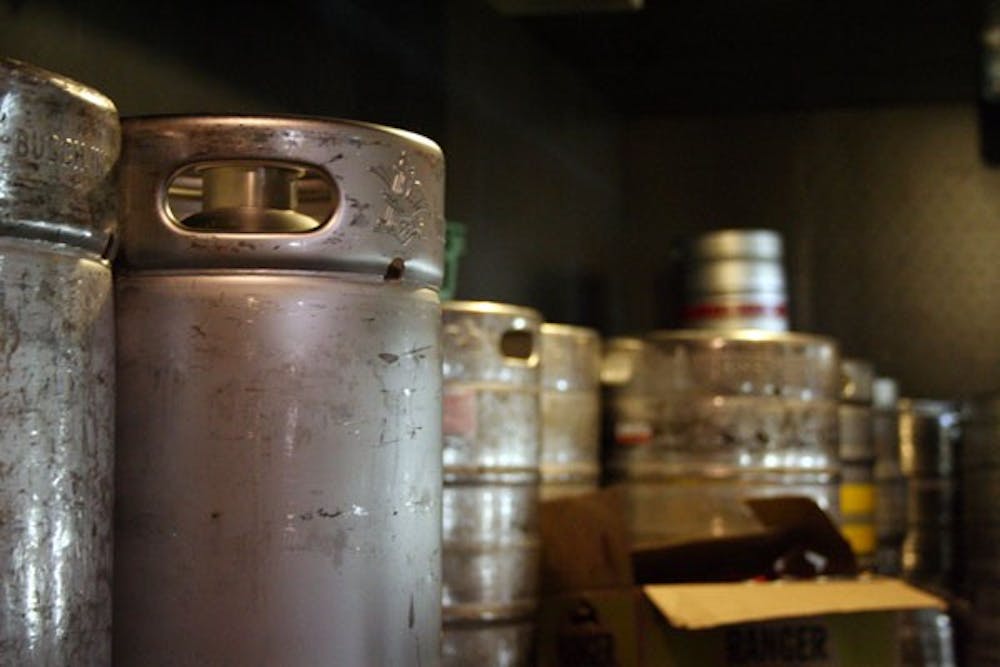Kegs may soon be a thing of the past at ASU football games.
A subcommittee of the University's student safety task force recommended banning kegs, as well as shortening hours for tailgating, banning re-entry into the stadium and dramatically increasing police presence after games.
Sgt. Daniel Macias works with the ASU police patrols that are outside of the stadium after games and said that the unit is very understaffed.
“There just isn’t enough guys out there," he said. "We’ll get called over to somewhere and that’ll leave another area completely uncovered. Back when the Cardinals used to play here, large patrols were a regular thing.”
Macias said kegs create underage drinking because large amounts of alcohol lead to large amounts of people, so an underage person could wander up and casually take alcohol.
“What we’re looking for is the safety of everyone involved,” Macias said. “The students, the public — we’re looking at ways to address the situation.”
Pennsylvania State University banned kegs at tailgating in 1993 and was the first university to do so. The PSU officers who worked pre- and post-ban said it caused a large decrease in the volume of alcohol consumed. Chief Spokesperson Lisa M. Powers said in an email she was supportive of the ban on kegs at tailgating parties, as well as a 2006 ruling that banned alcohol from Beaver Stadium.
“Having kegs in the parking lots and surrounding fields meant that the volume of alcohol being consumed was far greater and more dangerous, leading to disorderly conduct, vandalism and assaults, as well as alcohol overdoses that required emergency room care,” she said.
Macias said ASU and the committees are looking for those types of changes.
Subcommittee member Alberto Gutier is also the director of the Arizona Governor's Office of Highway Safety and said he believes that the role this committee plays is an important one.
“What we’ve really got to ask is how do we prevent tragedy?” he said.
Gutier said that the call for this new committee originally started with the death of Jack Culolias in December 2012, and their conviction has only increased with each incident since then.
The main committee, which consists of representatives from East Valley police forces, the Office of Highway Safety, ASU’s dean of students, and off-campus housing, will recommend its suggestions to the Arizona Board of Regents in May, Gutier said.
Reach the reporter at dhignutt@asu.edu or follow him on twitter @davidhignutt





